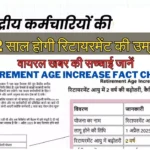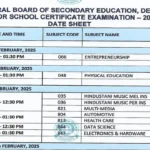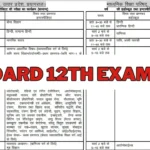The WDeeh.com (hereafter referred to as “WDeeh.com” / “We” / “Us” / “Our”) would like to let you know about the care and precaution We take to ensure that the content is accurate as required, which is covered by Our Fact-Checking Policy.
Due accuracy in all Our content
The most crucial factor for any journalism platform is the audience’s trust. Accurate, fair, and balanced reporting is the only foundation upon which trust can be built and maintained. It is crucial that we continue to be dedicated to achieving appropriate accuracy in all of our content to the greatest extent possible. According to our definition of “due accuracy,” accuracy must not only meet the required standard but also be satisfactory overall.
In our pursuit of proper accuracy, we also take into account other factors like the topic and nature of the information being provided, the audience’s expectations, etc. We strive to present the most accurate account that the news’s immediate stakeholders can support in every news report.
We look into claims critically, query presumptions, and contest received wisdom. Despite our best efforts to clear them up, there will always be some areas of uncertainty. The standards for fact-checking information for both soft and hard stories vary, though. For instance, the sources needed for a story about an NGO’s accomplishments would differ from those needed for an investigative story.
To ensure that our content is accurate, we follow the advice provided below:
We make sure that every broadcast we produce has verifiable data backing it up from a reliable source. We are required to credit the platform from which the stories are sourced when there are no direct sources available.
We make an effort to confirm any claims, allegations, or information attributed to public authorities or from someone we believe has a reason for doing something other than simply reporting an event’s veracity. As a result, we disclaim and qualify any information, including any assertions or accusations that we are unable to substantiate.
We firmly believe that the information we publish is accurate. If it is discovered that the information is inaccurate, we change it as soon as it is reasonable to do so and make sure to properly notify our readers of the changes.
We are aware that the confidence our audiences have in us is crucial. Therefore, it is our goal to avoid purposefully misinforming anyone and to present accurate information without editing or fabricating any facts. Furthermore, when significant factual errors are exposed, we publicly acknowledge them and make sure they are corrected as soon as is practical in a way that is understandable and appropriate.
We make sure that the public has a fair opportunity to report any errors or inaccuracies via our official email, wdeehnews@gmail.com.
Our journalists’ primary duties include reporting, writing, and fact-checking news, information, and stories. In fact, each of our pieces undergoes a thorough due diligence process before being reviewed by one or more of our editors as part of a robust fact-checking internal procedure. It is important to note that the seniority of editors who review stories before they are published on the website varies and depends on a number of factors, including the complexity and sensitivity of the subject matter and the pressure of the deadline.
We make sure to reach out to everyone who an allegation might affect. Then, in order to produce the most accurate result, we independently verify both the relevant information and the information being provided.
Sourcing Information for Our content
We follow the instructions provided to source information accurately:
Verify all of the information from at least two different sources.
When there is only one source, supporting what the source is saying helps to ensure its veracity.
In every situation, look for documentary evidence rather than relying solely on a human source.
When conducting a survey, it is our responsibility to explain how the data was gathered and analysed. If there is a chance that our data won’t produce accurate information, we let the audience know as soon as we can about the discrepancies.
Instead of making the information public first and then clearing up any lingering questions, the goal and intention is to obtain accurate information right away.
Always make an effort to gather information from or speak with news sources on record. Work out a way with such sources to give the readers as much information as possible about them so that readers can judge the sources’ reliability. When an anonymous source is used, explain why it wasn’t named, depending on the circumstances.
Share source information with Our editors give them (editors and reporters) the tools they need to determine whether the information in question is suitable for use and how it might be used. Anonymous quotations must reflect the conversation between the reporter and editor.
Have brief discussions with sources about the best ways to use the information they provide, especially if they lack a lot of media engagement experience. If a source requests that information be kept “off the record,” “on background,” or in another status, be sure to make that clear because different people may have different meanings for these terms.
Give people the opportunity to respond to stories that might present them negatively, and inform readers of the steps we take to contact sources if they don’t respond.
Consciously look for sources that lack access to large public platforms in addition to those that are powerful and influential.










